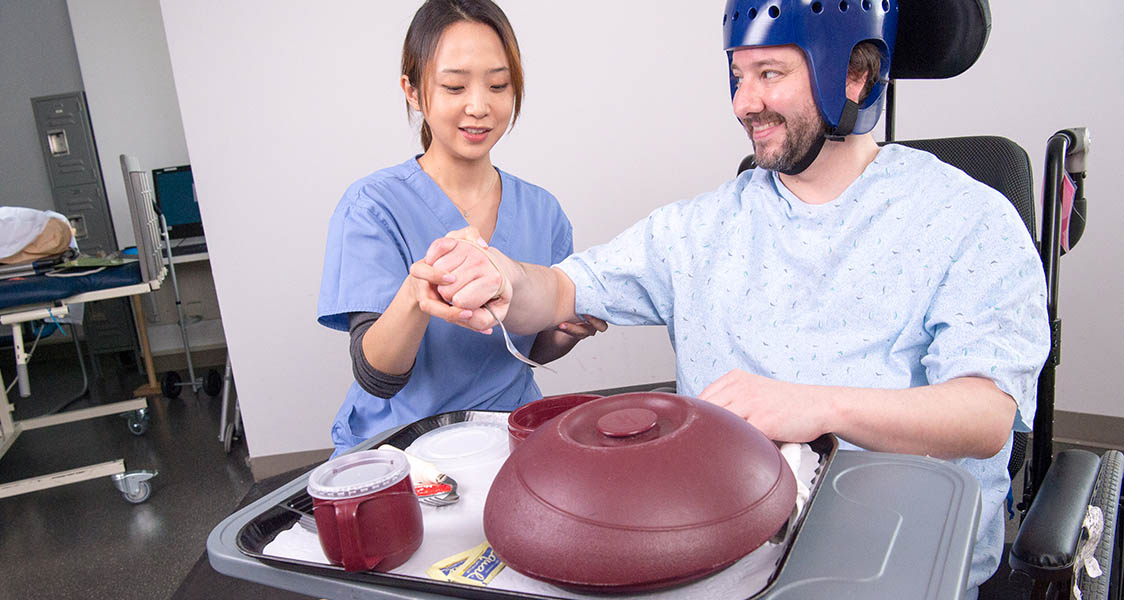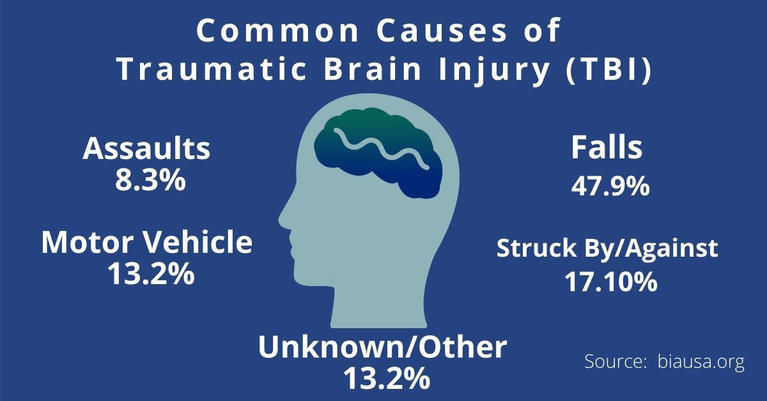
Traumatic Brain Injuries
Our lawyers can help you get the money for your injuries quickly.Traumatic Brain Injuries occur when there is a sudden jolt or blow to the head that disrupts the normal functioning of the brain. These injuries can range from mild concussions to severe brain damage and can have long-lasting or even permanent effects on an individual’s physical, cognitive, and emotional well-being.
Brain injuries, including traumatic brain injuries (TBIs) and acquired brain injuries (ABIs), can result from various causes. These injuries can vary in severity, from mild concussions to severe and life-altering damage.

What are the common causes of brain injuries in California?
Falls: Falls are a leading cause of brain injuries, especially among children and older adults. Falls can occur at home, in public places, or during recreational activities.
Motor Vehicle Accidents: Car accidents, motorcycle crashes, bicycle accidents, and pedestrian collisions can lead to head injuries and brain trauma.
Sports Injuries: Contact sports such as football, soccer, boxing, and hockey can result in concussions and other brain injuries due to impacts and collisions.
Assaults and Violence: Physical assaults, including punches and blows to the head, can cause traumatic brain injuries.
Bicycle and Motorcycle Accidents: Cyclists and motorcyclists are at higher risk of brain injuries due to the lack of protection in the event of a crash.
Workplace Accidents: Brain injuries can occur in hazardous work environments, especially in industries like construction, where falls and impacts are more common.
Recreational Activities: Recreational activities such as skateboarding, rollerblading, and horseback riding can lead to falls and head injuries.
Explosions and Blasts: Military personnel and civilians exposed to explosions, such as in combat or accidents, may suffer traumatic brain injuries due to the force and shockwaves involved.

What are some common symptoms of traumatic brain injuries?
The symptoms of traumatic brain injury (TBI) can vary widely depending on the severity of the injury and the specific areas of the brain affected. TBI symptoms can be classified into two main categories: physical and cognitive/psychological. It’s essential to recognize these symptoms, as some TBIs may not be immediately apparent and could worsen over time.
What are some common physical symptoms to experiencing a traumatic brain injury?
Here is a list of some common physical symptoms of traumatic brain injuries:
- Headache: Persistent or severe headaches are a common symptom following a TBI.
- Nausea and Vomiting: TBI can cause feelings of nausea and may lead to vomiting.
- Dizziness and Balance Problems: TBI can affect the vestibular system, leading to balance issues and a sense of unsteadiness.
- Sensory Problems: Changes in sensory perceptions, such as blurred vision, ringing in the ears (tinnitus), sensitivity to light and noise, or a bad taste in the mouth.
- Fatigue and Sleep Disturbances: Feeling tired or having difficulty sleeping more than usual.
- Loss of Consciousness: In severe cases, loss of consciousness may occur, ranging from a few seconds to minutes or longer.
- Seizures: Some individuals may experience seizures following a TBI.
Are there any common cognitive & psychological symptoms for a traumatic brain injury?
Here is a list of some common cognitive & psychological symptoms of traumatic brain injuries:
- Memory Problems: Difficulty remembering recent events or forming new memories.
- Confusion and Disorientation: Feeling disoriented, having difficulty concentrating, or feeling mentally foggy.
- Mood Swings: Emotional changes such as irritability, agitation, anxiety, or depression.
- Personality Changes: Changes in personality traits or social behavior.
- Trouble with Speech and Language: Difficulty speaking, finding the right words, or understanding language.
- Impaired Judgment: Difficulty making decisions or exercising judgment.
- Trouble with Information Processing: Slowed thinking or difficulty processing information.
- Difficulty with Multitasking: Reduced ability to handle multiple tasks simultaneously.
- Loss of Motor Coordination: Problems with fine or gross motor skills, such as difficulty walking or clumsiness.
It’s important to note that not all symptoms may manifest immediately after a TBI, and some symptoms may appear or worsen over time. If you or someone you know has experienced a head injury and is exhibiting any of these symptoms, it’s essential to seek medical attention promptly. Early diagnosis and treatment can significantly impact recovery and improve outcomes for individuals with traumatic brain injuries.
Remember, each personal injury case is unique, and the process may vary depending on the specifics of your situation. Consulting with VBV Law Group will provide you with the most accurate and relevant advice for your specific case.
When should you consult with an Attorney?
VBV Law Group will provide you with the most accurate and relevant advice for your specific case.



